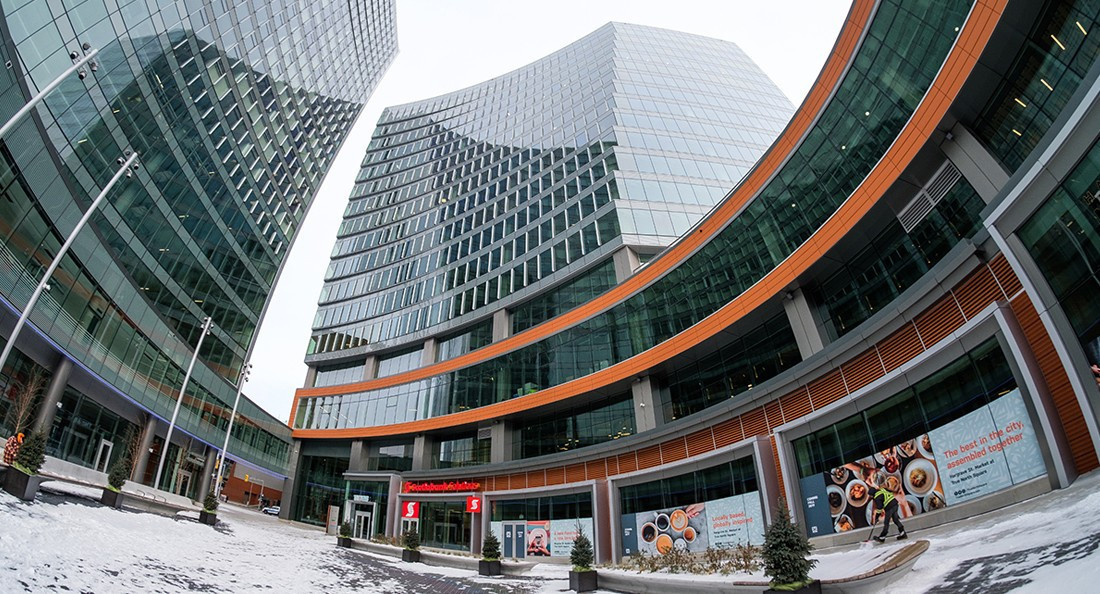Rental report
A closer look at the state of renting in Winnipeg
The construction of True North Square illustrates a trend in Winnipeg which has prioritized condos over rental units. (Photo by Daniel Crump)
Scott McCullough, a senior research associate at the IUS and one of the authors of the report, says that while previous research indicated a loss of rental units, the number was surprising.
The lost units were largely converted to owned condominium units, and this particular shift in the housing supply has nuanced impacts. McCullough explains that condo units are more affordable than freestanding units, making them an appealing option for first-time buyers, young people and seniors downsizing from larger homes.
But rental units serve different people and purposes in the housing ecosystem. McCullough argues that the impacts on rental units have been more significant than the impact on owned units.
“Conversions typically target older apartment buildings that were affordable” he says. “The affordable rental units that have been targeted for conversion are concentrated in the core of the city, and that core of the city actually needs affordable rental. We think a significant amount of people who would have otherwise been in affordable rental units would struggle to come up with the downpayment to move into a converted condo.”
McCullough says the loss “has permanently reduced the availability of affordable rental units, and that is something all levels of government should look at and should try to minimize,” noting that other jurisdictions have taken measures to limit this conversion.
As affordable rental units are becoming harder to find, groups like the West Broadway Tenants Committee are reminding tenants of their rights and holding landlords accountable.
Since September, Stefan Hodges has been working with renters in West Broadway to come together and create a collective response to issues in the building. Similar to a labour union, creating a tenants’ organization uses the power of many to bargain for better conditions.
“Landlords aren’t really used to this. In some cases, we have received retaliation even for just getting tenants to meet each other over an issue. I think that shows there’s a lot of power when tenants come together,” he says.
Despite their actions not breaking any laws and tenants being protected to form a tenant association, the committee has received two legal threats over five campaigns.
He says the main issues facing tenants in the community are maintenance problems, rent increases and “renovictions,” which are when a landlord ends a tenancy to repair or renovate a unit.
Hodges reminds tenants that there are protections in legislation, but tenants can also meet with their landlords if they don’t think they’re being treated fairly. Meeting with other tenants and demanding their landlord fix a problem, offer compensation or keep the rent at a reasonable rate can be quicker and easier than pursuing legal action.
“What organizing does is build more power for tenants to come to the negotiation table as a balanced partner. As a group, it’s easier to try and stay in their home and actualize their rights,” Hodges says. “Hopefully this builds a bigger movement in collaboration between tenants in the city.”
Published in Volume 76, Number 19 of The Uniter (March 2, 2022)







